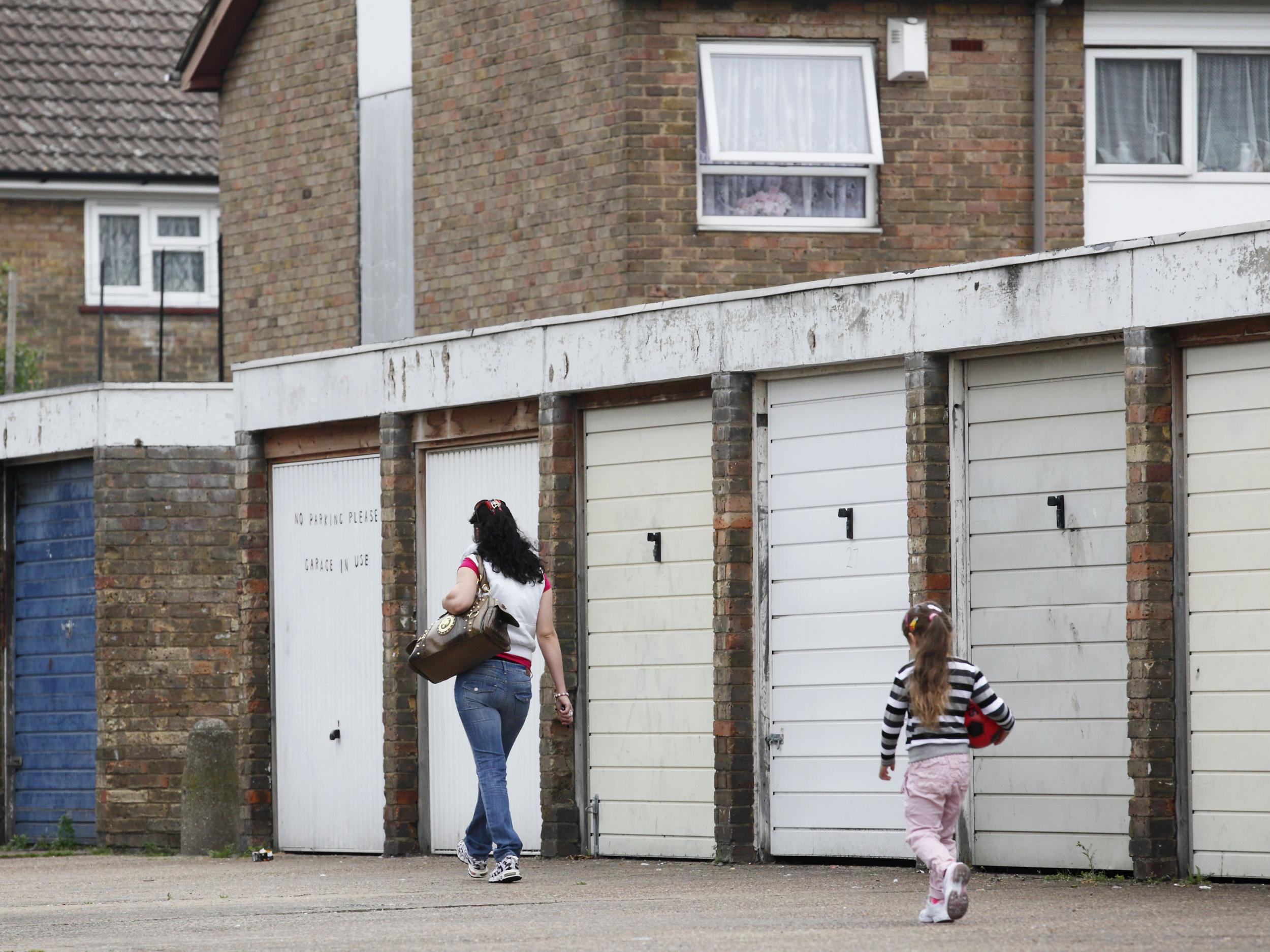Single mothers fleeing domestic abuse forced into homelessness by benefit cap, charities warn
Choosing between living with an abuser and homelessness is a choice no survivor should have to make, Women’s Aid warns

Your support helps us to tell the story
From reproductive rights to climate change to Big Tech, The Independent is on the ground when the story is developing. Whether it's investigating the financials of Elon Musk's pro-Trump PAC or producing our latest documentary, 'The A Word', which shines a light on the American women fighting for reproductive rights, we know how important it is to parse out the facts from the messaging.
At such a critical moment in US history, we need reporters on the ground. Your donation allows us to keep sending journalists to speak to both sides of the story.
The Independent is trusted by Americans across the entire political spectrum. And unlike many other quality news outlets, we choose not to lock Americans out of our reporting and analysis with paywalls. We believe quality journalism should be available to everyone, paid for by those who can afford it.
Your support makes all the difference.Single mothers fleeing domestic abuse are being forced into homelessness, prompting charities to call for the “shameful” benefit cap to be scrapped.
Families escaping domestic abuse are likely to be benefit capped, especially if they have three or more children which means they struggle to afford appropriate housing, in the midst of the cost of living crisis.
Women’s refuges have seen a continuous problem of ‘bed-blocking’ where women and their families are ready to move out but can’t afford to move into a home of their own, meaning they stay in the refuge for longer. This then means there is less space for other women trying to access support.
Sophie Francis-Canfield, policy and public affairs manager at Women’s Aid, said: “Choosing between living with an abuser and homelessness is a choice that no survivor should have to make.
“Because the benefit cap is so low and most of the country has seen housing costs rise so that even small families, in modest homes, in areas that aren’t particularly expensive, are finding it harder and harder to find a home on that budget.
“Women very much want to move on and live their free independent lives and go back to their support networks and families, but because of the lack of affordable housing, debts, and lasting consequences of abuse, they’re stuck.”
The benefit cap limits the total amount of money someone can get from benefits. If the total amount a person receives exceeds the cap, their housing benefit is reduced until it reaches that limit.
People entitled to disability and caring benefits are exempt from the cap.
Polly Neate, chief executive of homelessness charity Shelter said: “The benefit cap is pushing families into homelessness or in the worst cases trapping them in abusive homes.
"Horrifyingly the cap is forcing women to choose between staying with their abuser or risk homelessness, because if they flee, the housing benefit available won’t be enough to cover the cost of even a very modest private rent.
“Our services regularly speak to women who’ve become homeless after escaping abuse and violence – this is the shameful outcome of a short-sighted and punitive government policy."
For couples or those with children, the benefit cap is £20,000 outside of London and £23,000 in Greater London. Single people are capped at £13,400 outside of London and £15,410 in Greater London.
Despite rising costs, the cap has not increased since it was established, and the rate was lowered in 2016, where it has remained.
Iain Porter, policy and partnerships manager at social change organisation The Joseph Rowntree Foundation said: “The Government’s decision to freeze the benefit cap once again at 2016 levels while the cost of living surges will be devastating for families already struggling the most.”
Most recent data shows 120,000 people are affected by the benefit cap, with 65 per cent of those single parents, of which the vast majority are women.
Ceri Smith, head of policy at Gingerbread, a charity that supports single parents, said: "A lack of suitable work and affordable childcare makes it incredibly difficult for some single parents, especially those living in more expensive areas like London, to escape the cap and means they’re forced to exist on welfare payments that don’t cover basic living costs.”
The cap disproportionately impacts black and minority ethnic women, who are more likely to have larger families, as they are left with the same budget but higher costs of raising more children.
The House of Commons Work and Pensions Committee concluded in its 2019 evaluation of the cap that: “The department decides whether people are entitled to benefits, and how much it thinks they need to live on.
“It is therefore inevitable that the benefit cap, which takes some of that money away, leaves many families without enough money to meet even their basic needs.
“Parents are left making impossible choices: whether to pay their rent, feed their children or heat their homes.”
During the inquiry, MPs found the cap caused poverty and hardship, with many falling into arrears and losing their homes.
The Domestic Abuse Act 2021 made local authorities in England responsible for providing accommodation support to victims of domestic abuse and their children.
A Department for Work and Pensions spokesperson said: “We are committed to ensuring that the most vulnerable in society are protected and get the help they need. Jobcentre staff receive training to identify and support victims of domestic abuse, and can direct them to specialist organisations who can offer further support.
“The benefit cap, up to the equivalent salary of £24k, balances fairness for taxpayers with providing a vital safety net.”




Join our commenting forum
Join thought-provoking conversations, follow other Independent readers and see their replies
Comments